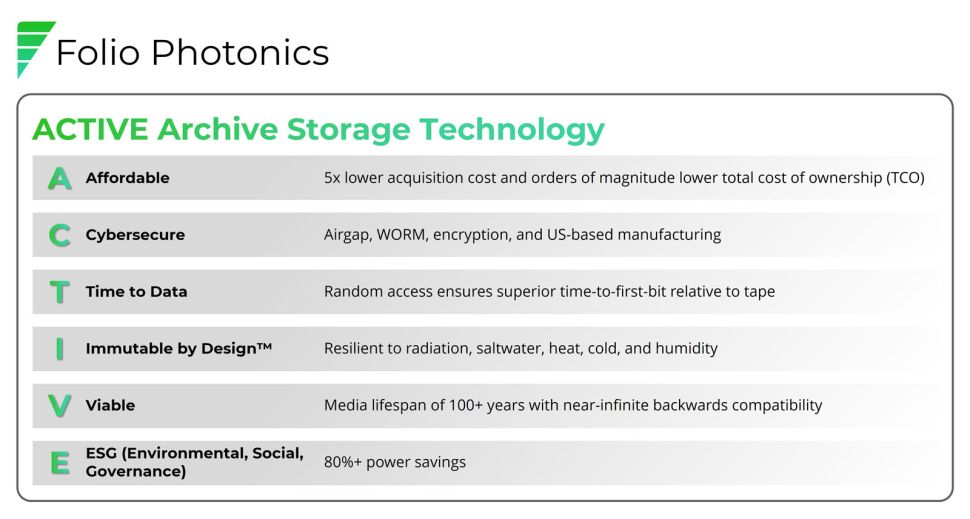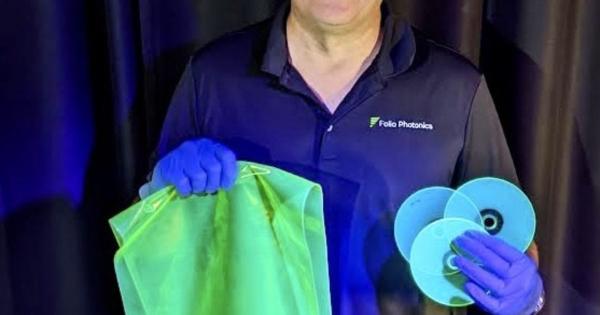First it was floppy disks, then optical disks, then hard disks, and then solid-state disks. But will it be possible for optical discs to return? Well, one company says yes, because it promises to have developed a storage technology that allows you to create 1TB disks at $5 USD or less!
Folio Photonics is an American company that a few hours ago released a press release in which it claimed to have developed an “innovative multilayer optical disk storage technology to enable disruptive benefits in costs, cybersecurity and sustainability in the industry”. Basically, this technology will make it possible to manufacture multi-layer disks (which allows for greater storage) at ridiculously cheap costs.

Folio Photonics called this new standard ACTIVE, which stands for its 5 most important characteristics: affordable, cybersecurity, time to access data, immutable, viable and ESG (environmental, social, governed). The standard involves the manufacture of extremely cheap disks (around $1 USD per 1TB), which are not easily hackable, which offer very fast write/read speeds, which are not fragile to inclement weather or radiation and, finally, which save energy. On paper, these hard drives save 80% more energy than a standard hard drive.
“Our talented engineering team, under the leadership of founder and chief information officer Dr. Kenneth Singer, has pioneered a new approach to optical storage that overcomes historical limitations and puts unheard-of cost, cybersecurity and sustainability benefits within reach,” said Steven Santamaria, CEO of Folio Photonics. “With these advantages, Folio Photonics is poised to reshape the trajectory of file storage.”
Folio Photonics promises that its discs will begin to be distributed from 2024, in cartridges of 10 discs, each of which will have 1TB of capacity. In addition, it is expected that in the future more layers can be added to the disk, so that it can contain multiple TB.
Now the big question that remains is, do computers really need disks? It should be remembered that many of them no longer even include bahia. Still, a device that stores 1TB of information and costs $1 USD is, at least, eye-catching.









